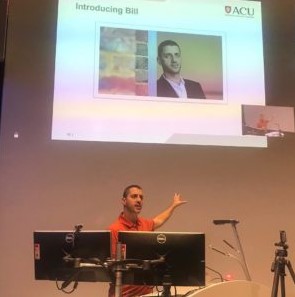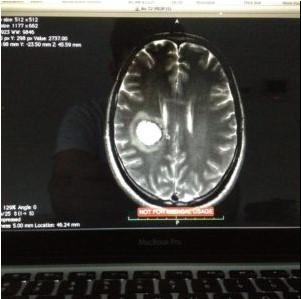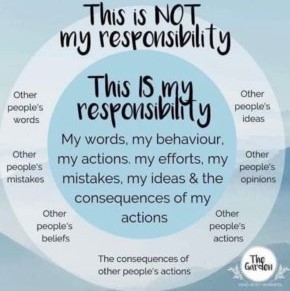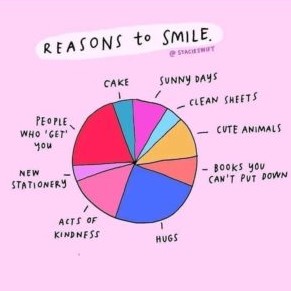Is faster stroke recovery achievable?
Stroke Podcast Episode 34 – Having experienced 3 brain haemorrhages in as many years and brain surgery to repair the AVM (arterial venous malformation) in his head, Bill has had first hand experience in what is required to create an environment for faster stroke recovery.
In this special episode of the Transit Lounge Podcast, Bill Gasiamis is a guest speaker at an event in Melbourne, Australia called Outspoken.
Bill’s presentation will give you an insight into how the words we use may support healing in unexpected ways, while others can interfere with recovery and decrease the effectiveness of neural plasticity and promote negative neural plasticity.
Experiences like the one Bill will share with you in this presentation, are part of what inspired Bill to begin a show dedicated to stroke recovery and create a community to share stroke recovery tips, tricks, and tools in the hope that others will be encouraged during difficult times.
Are you motivated to make a faster stroke recovery?
Looking to support your brain health and increase your brain recovery after your stroke experience?
Connect with Bill by using the links below to find out more.
Highlights:
01:21 Bill Gasiamis
02:50 Struggling with the business
05:33 Bill had his 2nd hemorrhage
06:24 The third bleed after 33 months
09:37 Saying negative words to yourself
10:44 Being nicer to ourselves
12:44 Words are like weapons
Transcript:
Intro 0:05
The transit lounge podcast moves you through life’s transit lounge and helps you go from where you are to where you’d rather be.
Bill 0:14
Good everybody and welcome to this special episode of the transit lounge podcast. Now, the reason this episode is special is because some time ago, I was invited to speak at an event called outspoken. And at this particular event, I was asked to share a story about something that I had experienced during my recovery from a stroke.
Bill 0:35
Now, the interview, this is not an interview, it’s a presentation where I speak to an audience and the topic was how the language that we use affects our stroke recovery. Now, the reason I share this is because I had a massive insight during my own stroke recovery. When I found myself comparing the way that I was talking to myself and the way that I was behaving towards myself.
Bill 0:59
Before the stroke, and then what I was doing that was different after the stroke and the benefits that I found that I experienced and that helped me in my recovery and get better results than even what the doctors expected. And now it’s on with the show.
Bill Gasiamis

Speaker 1:21
Bill Gasiamis is the founder of the groundbreaking program 10 Steps to regain your brain.
Speaker 1:30
Bills have also survived. Three brain hemorrhages, his attitude and creativity toward recovery will inspire and give you hope. When hope may have been lost please help me welcome Bill Gasiamis.
Bill 1:58
Good day everyone. Thanks for being here, how fantastic have the speakers been so far? Now a little story that I’m going to share with you today, I’ve made myself the protagonist, the star. It’s unlikely that I’m going to be ever be cast in a Hollywood or Bollywood movie. So since that I’ve got, you know, I’m the director for the next 10 minutes I thought I’ll make myself the star.
Bill 2:26
It’s probably not going to amount to that much. I’m not going to be able to afford my Ferrari after tonight, but I definitely don’t really care about Ferraris because I’d rather stand in front of a crowd to share my story. Because if you ever tried to drive a Ferrari in Melbourne, there are more speed cameras than there are people looking before my life changed In Feb 2012.
Struggling with the business after the stroke
Bill 2:50
I used to whinge all the time to my wife who’s over there about how difficult it was, for me to run my property maintenance business from our home. You see, we’ve got a little home. And we didn’t have enough space for me to set up a proper office. So not only do we not have enough space to set up a proper office, you know, my customers needed me there all the time.
Bill 3:17
I couldn’t work on the business. I had to work in the business. I couldn’t get my staff to do what I wanted them to do the way that I wanted them to do it. It was a real problem. I was so caught up in this endless cycle of negative self-talk that I didn’t have any other way to focus on anything else It was impossible. So in 2012, I woke up one morning and realized that I was experiencing some side effects that meant that I had to go to the hospital and get myself checked out.
Bill 4:01
That was one day before the biggest job of the year. And the only thing on my mind was, now I’m going to let down my clients, they’re not going to pay us, we’re not going to be able to deliver the job on time. No one’s going to know what to do. The Job’s not going to get done. It’s going to be a disaster.
Bill 4:23
Now four days into my seven-day hospital stint, after all the visits from the doctors and the nurses waking you up at every possible time they can get just when you’ve dozed off to check my pulse and your blood pressure. And with all the visitors coming in and visiting me the rest of the time, I spent actually running my business from my hospital bed.
Bill 4:46
It dawned on me like a bolt of lightning and just entered my head. And I couldn’t believe that what I was doing was actually the exact opposite of what I was saying. Only a few weeks ago, tomorrow. my wife about how difficult it was to run my business.
Bill 5:04
Now, Henry Ford once said, If you think you can, or think you can’t, you’re right. Did I have to get to that point where I was in a hospital or doctor’s orders to not go anywhere or do anything strenuous for me to work out a creative way to run my business? Well, turns out that for me, he was a little bit thick-headed at the time It did.
Bill had his 2nd stroke
Bill 5:33
So, six weeks after that initial hospital visit, as things started to slowly get better, we were getting prepared to find out from the doctors what the next step was. I experienced another brain hemorrhage. And now things got a little bit worse for me health-wise, and for quite a while before they got better you know, we really hit rock bottom was a really difficult time.
Bill 5:59
But as started to settle down and I started to recover. I started to find myself getting back on top of things. But in the meantime, somehow I had managed to hand all the paperwork over to my accountant. I managed to find a way to get other people to do my quotes for me. My turnover doubled.
The third one after 33 months

Bill 6:24
And I was on I was working half the hours and I had it never worked before. Now things started to really get better. And around 33 months later, after my first initial bleed, of thought I’d go for the first time. In 33 months, I’m on a bike ride. And I went for a bike ride and I felt fantastic. started to get active and started to feel really great. And the next morning when I woke up and I was heading to work, I realized I was having another bleed and went and checked myself into hospital again. This time the surgeon walked in and said you can’t get away with it this time. We have to operate
Bill 7:00
When I woke up from surgery, I discovered that I couldn’t feel my entire left side. And what I needed to do was go into rehab for a month. Learn how to regain the use of my left arm and walk. When I got there, I met Ivan. Now Ivan is a 70-something native of parts around something like Serbia, somewhere around Yugoslavia. Now I like the word Yugoslavia, it actually is parts of your voice box you hardly ever use.
Bill 7:35
They should still call it that I reckon. If you picture, if you can a table, which is about 1.2 by 1.2 Square, and around that table are two people on each side but where I’ve been standing, there’s only one person it’s only him because whatever happened to Ivan, lift him a hemiplegic.
Bill 7:56
And what he needed to do was be able to drive his mobility scooter in and have plenty of room to get out. As Ivan got in we introduced ourselves everyone got task everyone had a task to complete my task was to reach into I box filled with rice was like a plastic yellow Tupperware container and find some random objects and pull them out and identify them before I looked at them and put them on the table.
Bill 8:28
And as I was digging around the think the rice was best or long grain I never can tell as I was digging in and trying to find more random objects or something that caught my eye and I just noticed, Ivan. Ivan had a task as well. And Ivan’s task was to pick up a toilet roll an empty toilet roll with his affected hand because as a hemiplegic he had to rehabilitate one side of his body as well and move it across to the other side of his body without dropping it and leave leaving it on the small side. Here’s one I prepared earlier.
Bill 9:10
That’s how (inaudible) So Ivan’s task was to move the toilet roll. And as he was trying to do that, every time he did it, he knocked it over. He was getting really frustrated with himself. And he was saying things under his breath, and I couldn’t quite understand. But he got to that point, where after two or three goes, I actually heard him say, come on you bastard to his hand, and he said, move.
Saying negative words to ourselves can affect our recovery from a stroke

Bill 9:37
Now what I’m going to get you to do my pill is a little bit difficult, but just bear with me. I wonder if you could look at your hand and call it a bastard. See what happens. See what you notice. I’ll reverse the spell later. Now if you notice something change in your body when you talk to your hand that way, does your tummy tight in, does your heart start beating a little bit differently? Does a story you’re telling in your head change somehow?
Bill 10:10
So, the coach in me can’t help but intervene. So I’m sitting there with my hand in the rice. And I said, Ivan, tell me, mate. If your hand moved and did what you wanted it to do. What would you call it? He said I’ll call it my friend? I’m not sure if that was Russian or Serbian. So right, do me a favor, pretend that your hand has already done what you wanted to do, and call it your friend.
Being nicer to ourselves

Bill 10:44
And let’s see what happens next time. So, just as I asked, Ivan was pretty happy to go along with it. He looked at his hand just before he moved. He said, come on friend move. And you wouldn’t believe what happened. Does anyone want to guess? His hand fell off. No, I’m kidding. So what happened was his hand moved over, like never before grabbed the toilet roll moves it to the other side stands it up without it falling.
Bill 11:18
The room goes wild, the confetti starts falling from the sky, and the streamers start falling down. Everyone goes nuts. All right, maybe not that dramatic. Obviously, I didn’t convince you of that. But it was an amazing moment. Everyone around the table had noticed what was going on. And they really did get excited and so did Ivan.
Bill 11:40
Everyone stopped what they were doing and I was so focused on what he was doing that so did I. I had my hand still in the rice, not realizing that it was in there because I can’t even feel it. Now, at that moment, what I hope happened to Ivan, I hope that he was able to understand that that change in In his word, was going to make a difference in the way that the rest of his recovery could go.
Bill 12:08
I’m not sure how long it took Ivan to get out of the hospital because I was out there a month earlier a month before I was supposed to get out. And what I hope is that he continued to use positive words to change his outcome. Because we’ve all done it right. We’ve all used negative words to give ourselves a hard time. We’ve all said something negative to ourselves in a time of frustration or a time when we’re trying something new and we can’t quite manage to get over the line.
Words are like weapons and can impact Faster Stroke Recovery
Bill 12:44
We control our words. So if we choose how we speak to ourselves, we have a massive amount of control over what it is that we do going forward. This is important to me as you can tell was a big lesson for me. It’s part of the reason why I’m also up here tonight. So let’s end this on a positive note and take it to the next level. I want you to look at your hand again. And call it your friend. How does it feel? What did you notice? Did something change in your belly? Did your heart start to be a little bit calmer? Did the story in your head become a little nicer? In the immortal words of the great singer, Sher.
Bill 13:49
Words are like weapons, they wound sometimes. Thank you.
Bill 13:59
So I hope you got a lot out of that presentation. I had a heap of fun presented to that crowd. And it was just an amazing opportunity to share in public what it is that I realized about how I was using words and how other people around us who are recovering were also using words and how that was affecting them either negatively or positively their recovery.
Bill 14:24
So if you feel like this is an interesting episode, and that somebody you know should hear this episode, please do feel free to share this episode using Facebook or Twitter, or any of your favorite social media platforms. Also, do me a favor if you’re watching on YouTube, please do give us a like by clicking the thumbs-up button.
Bill 14:46
And leave us a comment and let us know what you thought. And let us know if this is something that now you’re going to take notice of and pay attention to more often. And just before I go, if you or someone you care about has experienced a stroke And has started the recovery, you’ll know what a scary and confusing time it can be. There are all these questions going through your mind like how long will I take to recover?
Bill 15:10
Will I actually recover? And what things should I avoid in case I make matters worse? My doctors and therapists will always be helpful in explaining things. But obviously, because I’ve never had a stroke before, I didn’t know what questions to ask. And so I worried a lot and I missed out on doing things that could have sped up my recovery.
Bill 15:31
If you’re finding yourself in that situation, stop worrying and head to the transitloungepodcast.com you can download a guide that will help you. It’s called seven questions to ask your doctor after a stroke. The seven questions are the ones I wish I had asked when I experienced my stroke because they would have not only helped me better understand my condition. It would have also helped me take a more active role in my own recovery.
Bill 15:59
Rather than just waiting to be told what to do at my next appointment. Head to the website thetransitloungepodcast.com and download the guide, it’s free. Thanks once again for listening.
Intro 16:18
This has been a production of recoveryafterstroke.com. Subscribe to the show on iTunes and check us out on Twitter. The presenters and special guests of this podcast intend to provide accurate and helpful information to their listeners.
Intro 16:43
These podcasts can not take into consideration individual circumstances and are not intended to be a substitute for independent medical advice from a qualified health professional. You should always seek advice from a qualified health professional before acting on any of the information provided by any of the transatlantic podcasts.
Listen to more from Bill here.






